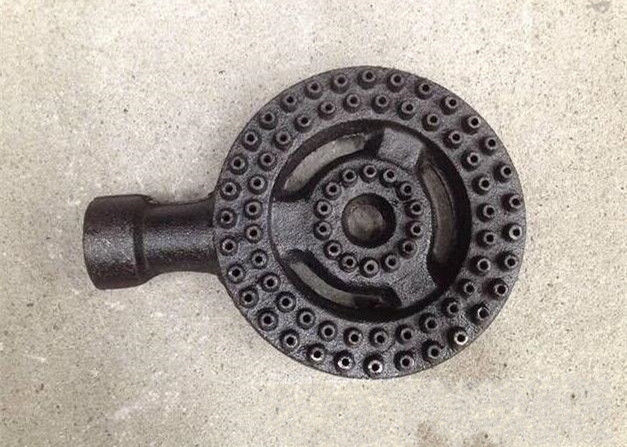Blog
Cast Iron or Aluminum Alloy: Which Gas Stove Grate is Right for Your Kitchen?
Material Composition and Manufacturing Excellence
Cast iron burners are crafted from high-grade gray iron (G2500-G3500) through precision sand casting processes, while aluminum alloy burners utilize ADC12 or A380 aluminum processed through high-pressure die casting. Our manufacturing incorporates advanced quality control measures, including spectrographic analysis and dimensional verification, ensuring consistent performance across both material types.
Performance Characteristics and Technical Specifications
Cast Iron Burners:
-
Superior heat retention with thermal conductivity of 50 W/m·K
-
Maximum service temperature of 650°C without deformation
-
Natural corrosion resistance through seasoned surface treatment
-
Weight typically 2.5-4.5kg for standard residential burners
Aluminum Alloy Burners:
-
Lightweight design weighing 0.8-1.5kg for easy handling
-
Excellent corrosion resistance with optional anodizing
-
Thermal conductivity of 96 W/m·K for rapid heat response
-
Maximum service temperature of 450°C with reinforced design
Production Process and Quality Assurance
Our cast iron burners undergo resin sand casting with automated molding systems, followed by precision machining of gas ports and mounting surfaces. Aluminum burners are manufactured using 800-ton die casting machines with vacuum assistance, ensuring dimensional accuracy within ±0.15mm. Both products complete rigorous testing including:
-
Pressure testing at 1.5 times working pressure
-
Thermal cycling evaluation (2000+ cycles)
-
Flame distribution analysis
-
Load deformation measurement
Application Scenarios and Recommendations
Cast iron burners excel in commercial kitchens and high-usage environments where durability and heat retention are prioritized. Their weight provides stability during heavy-duty cooking, while the seasoned surface develops enhanced non-stick properties over time.
Aluminum alloy burners suit modern residential kitchens where lightweight handling and aesthetic appeal are important. Their corrosion resistance makes them ideal for coastal regions, while the sleek appearance complements contemporary kitchen designs.
Technical Advantages and Limitations
Cast iron's thermal mass ensures even heat distribution but requires longer preheating. Aluminum provides instant heat response yet may show hot spots. Our engineering team can recommend the optimal solution based on your specific cooking requirements, installation environment, and performance expectations.
Both burner types comply with international safety standards and are backed by comprehensive quality certifications, ensuring reliable performance whether you prioritize cast iron's rugged durability or aluminum's modern efficiency.

CATEGORIES
LATEST NEWS
CONTACT US
Name: John Yu
Mobile:+86 15941574876
Tel:+86 15941574876
Whatsapp:+86 15941574876
Email:john_yu@metals-casting.com
Add:Wangjiapu Group, Xinan Village, Qianyang Town, Donggang City, Dandong City, Liaoning Province, China.
